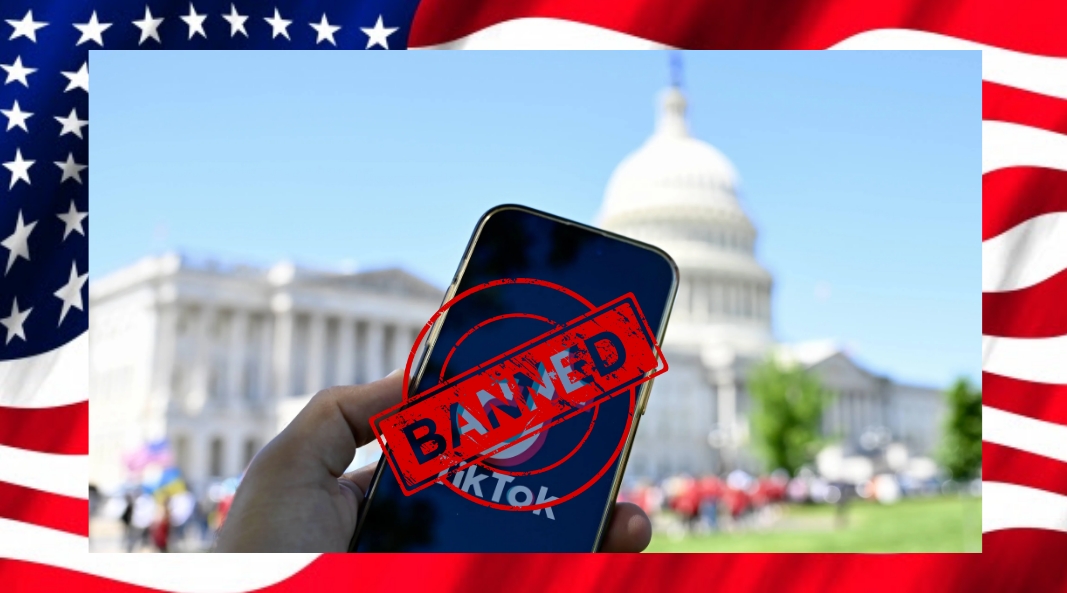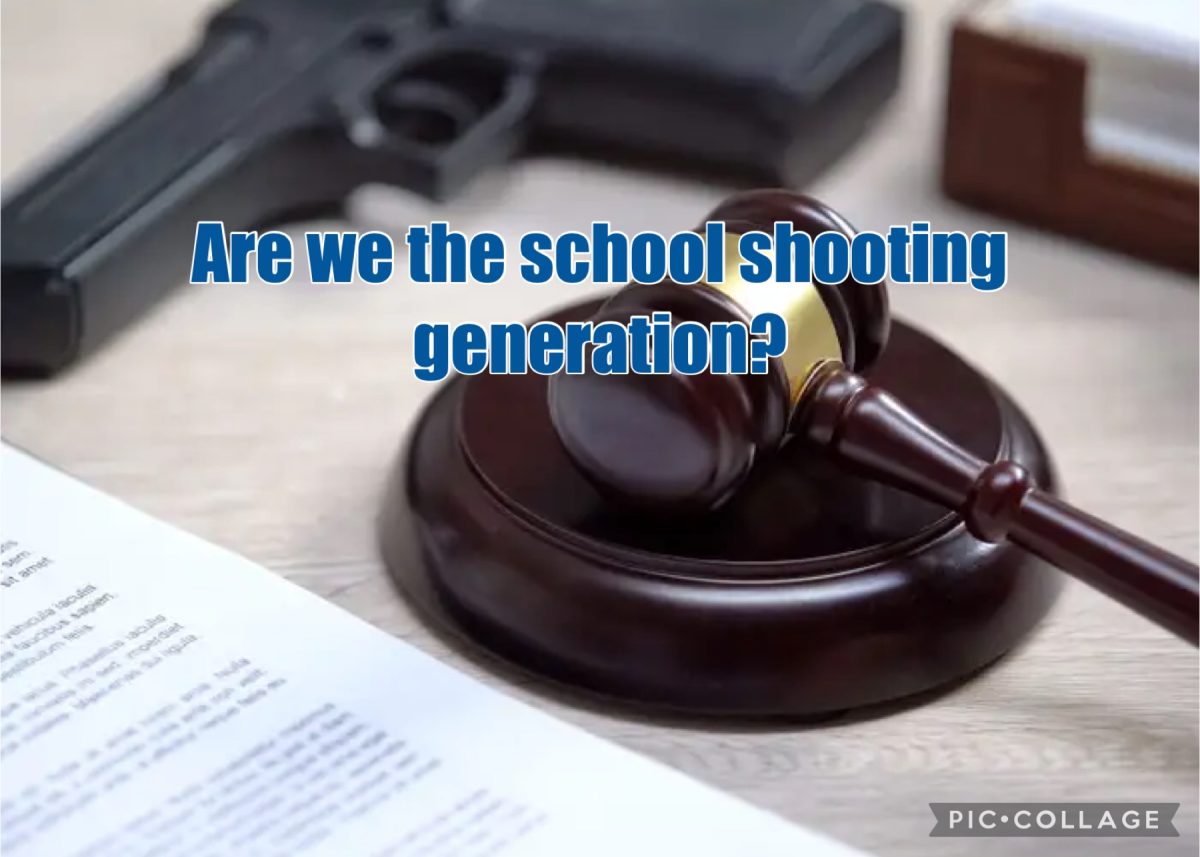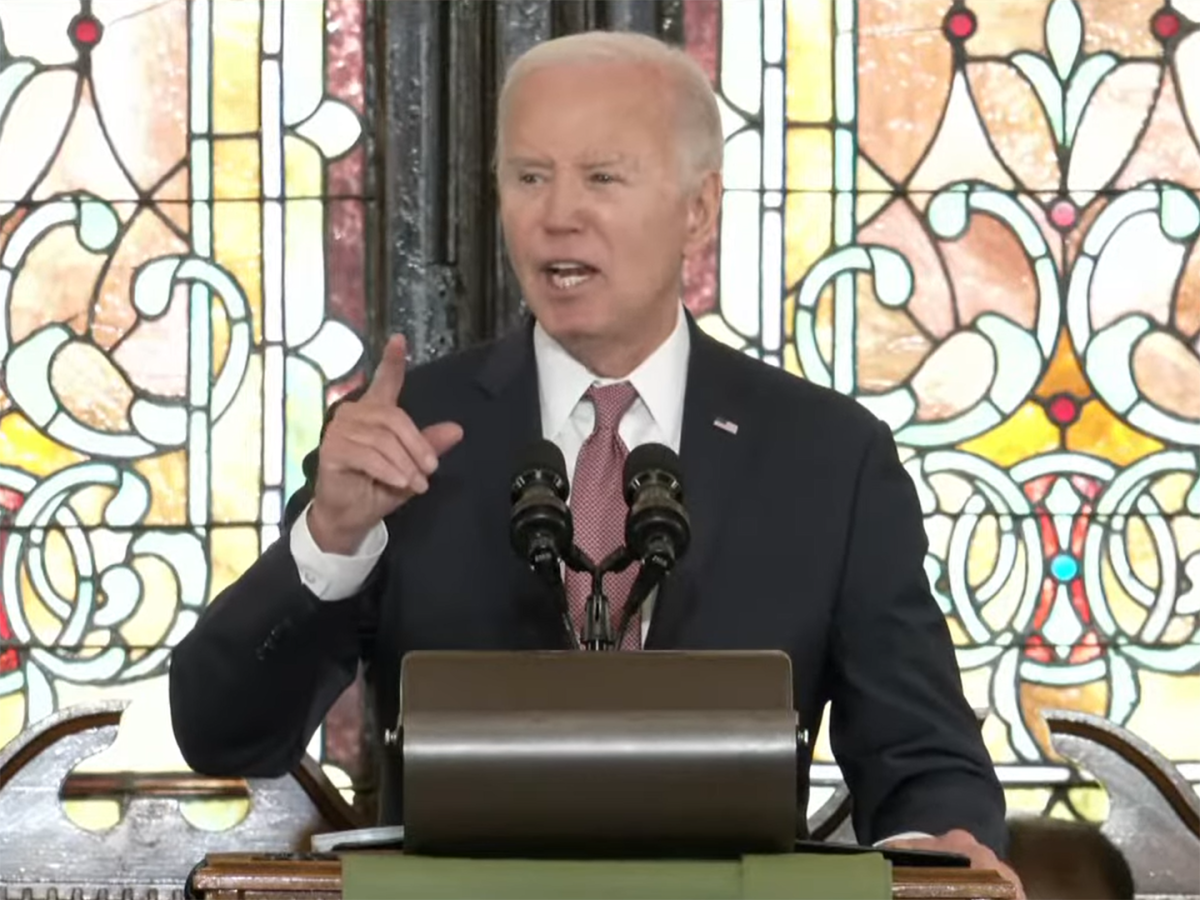Lawmakers have been trying to ban TikTok since 2020; however, their attempts have been unsuccessful until now. On Tuesday, April 23rd, the Senate passed a bill banning the popular social media app “TikTok,” following its passage in the House of Representatives on Wednesday, March 13th. Both chambers passed the bill on a bipartisan basis: the House passed on a 352-65 vote, and the Senate passed on a 79-18 vote. President Biden, an avid supporter of the bill, passed it the morning of Wednesday, April 24th. This article provides background for the ban and a personal opinion about what will happen next.
What happens next?
The United States has told the company to either sell the app to a new owner or accept that it would be banned in the country. The legislation gives TikTok 270 days to do so but can receive a 90-day extension if a sale is in progress. However, the app does not seem to have any intent of resigning and does seem passionate about fighting this ban. If TikTok does get banned in the United States, it will not take effect immediately. On top of an almost one-year period, before the app is fully banned, people can still have the app on their phones; they just cannot download or update it.
So why is TikTok being banned?
Supporters of the ban alledge that the app poses a threat to national security because of a fear that the Chinese government is using the app to spy on American citizens. Additionally, they argue that TikTok selects and manipulates the content that Americans see. Its parent company, ByteDance, is headquartered in Beijing, China, and is presumed to have direct ties to the government. Despite protests from TikTok CEO Shou Zi Chew that the app is not involved with the communist government, Congress and President Biden disagree. Per Business Insider, TikTok’s pleas to the public to oppose its ban and private pressure on bill opposition by the Chinese embassy have only worsened the situation.
If lawmakers overwhelmingly support the ban, how does the American public feel?
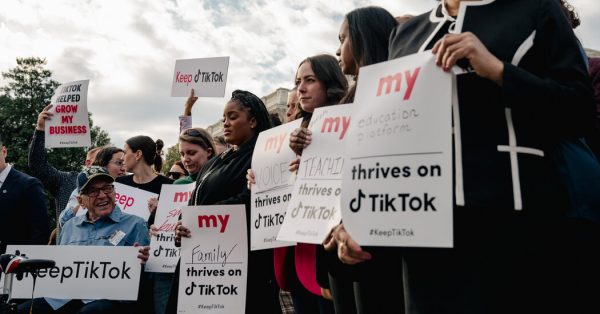
The American public is split on the decision to ban TikTok. A December 2023 poll by the Pew Research Center found that thirty-eight percent of Americans supported the ban, a decrease from fifty percent in March of the same year, while over a quarter are against it. The support for the ban is mainly from those over 50, those who lean Republican, and those who do not use TikTok. The opposition comes from those who use TikTok, those who are under 30, and those who believe that the bill violates the first amendment’s “freedom of speech” provision. People support the bill mainly because of their skepticism of a Chinese social media platform. Although TikTok originally stated that American TikTok data was stored in servers in Virginia and Singapore, the financial information for TikTokers who are part of the “Creator Fund” (a program that pays influencers money for views and likes) is actually stored in China. Therefore, monetary information such as “tax forms, social security numbers, and other information from creators and outside vendors” is stored in China (Levine, 2023). This misinformation has led to greater distrust in the company and confirms the fears of supporters. However, many oppose the bill because there is no public proof that China is actually stealing/has stolen personal data or information, only speculations and allegations from many different parties. Therefore, there being no concrete example of China stealing data from Americans makes it extremely difficult for the public to turn against it despite warnings from the government. Also, according to the Pew Research Center (2023), fifty-eight percent of American teens use TikTok daily, and as it is a part of people’s routines, people are less willing to alter their lifestyle.
Could the Chinese government actually be stealing and maliciously using American user data?
Though it has not been proven, there is a chance that China is stealing user data. Some ex-TikTok employees have claimed that the company works closely with the Chinese government and have accused the app of giving information to the government. As the East Asia nation is run by an adversarial government, they have the potential to interfere with the app and the data that it possesses, as it treats many privately owned companies like government ones.
Despite building a large following on TikTok and being an active user, a Democratic representative from North Carolina, Jeff Jackson, voted in support of the TikTok ban. After receiving backlash from his supporters and other users, Senator Jackson said, in a response video, that he voted for the bill because he had “been a part of some briefings about this app that were genuinely alarming;” however, he did not go into further detail. Although vague, it suggests that the American government knows more about the situation than is willing to share, despite knowing that if they did provide reasons for the pasture, they would regain mass public approval.
We aren’t going anywhere. We are confident, and we will keep fighting for your rights in the court.”
— TikTok CEO Shou Zi Chew, 4/24/24
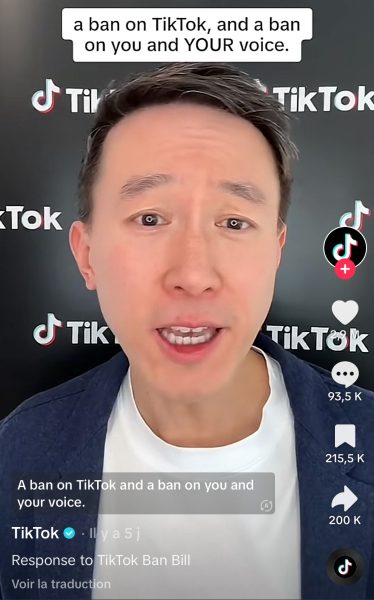
Unfortunately, I believe that TikTok will end up getting banned. There are over 1.7 billion users worldwide and only 150 million in the United States. Therefore, I do not think ByteDance will choose to sell the app simply because one country backs out, especially since over three-quarters of its profits come from China. Even though this decision has extremely upset many Americans, I do not believe Congress will change their minds. In addition, as there are also other social media apps that users can move to, not much protest will occur. Although I do think that this ban toes the lines of the ban violating the First Amendment’s freedom of speech, the Supreme Court will not rule against Congress and the president to protect the “freedom” of a private, foreign entity belonging to a country that is a foe of the nation.
Sources
Exclusive: TikTok Confirms Some U.S. User Data Is Stored In China (forbes.com
Americans favor government ban of TikTok by more than 2 to 1 | Pew Research Center
Senate Passes TikTok Ban Bill, Setting Up First Amendment Battle (variety.com)
How every House member voted on the TikTok ban | CNN Politics
Wait, is America actually banning TikTok now? | CNN Business
Biden just signed a potential TikTok ban into law. Here’s what happens next | CNN Business
Why U.S. officials want to ban TikTok – CBS News
China Just Proved Why Congress Wants to Ban TikTok (businessinsider.com)
TikTok CEO Says ‘We Aren’t Going Anywhere’ After Biden Signs Potential Ban Into Law (msn.com)
Tiktok Statistics For 2024: Users, Demographics, Trends (whatsthebigdata.com)
TikTok’s U.S. Future Still in Limbo as Raimondo Visits China – The New York Times (nytimes.com)
TikTok Ban: Everything You Need to Know | PCMag



